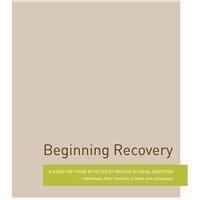A nationwide study of British employees has revealed as many as 86 percent of doctors feel pressure to get drunk, due to a “workplace drinking culture”.
Railway workers came second (82 percent), and IT workers a close third (81 percent).

Who is drinking more units than is good for their health?
Overall, almost a third of the employed Britons who took part in the study, believe they would be at a disadvantage at work if they didn’t drink alcohol, despite many wanting to cut down or stop completely.
The research revealed the extent to which employees feel they would be seen as an outcast if they didn’t drink, with almost HALF (47 percent) saying they feel real pressure to keep up with the booze culture at work.
In fact, the extent to which work based “beer pressure” is impacting our lives was revealed in the study, with 32 percent of those polled saying there is a culture of excessive drinking at their workplace.
A further 43 percent claim they actively avoid “work dos” because they know the pressure to overindulge with booze will be too much to withstand.
But one in ten Brits have stopped drinking solely to improve their work performance, and seven percent because it was having a negative impact on their ability to do their job.
The study found that a staggering 59 percent of Brits felt they had a problematic relationship with alcohol, with four in ten having felt at times that they were out of control in relation to their drinking.
Yet the pressure to drink is huge, with 43 percent of the 2,000 working Brits polled claiming they had been coerced into drinking booze on a night out by friends and colleagues, despite not wanting to indulge.
And 70 percent of people who have tried to give up booze admit they have been made to feel awkward by others if they say they are abstaining. Shockingly, the same number claim that this pressure has actually caused them to hit the bottle again.
Said Ruari Fairbairns of One Year, No Beer: “It goes without saying that the UK has a strong drinking culture and with that, peer pressure is equally strong and alive. It’s shocking that the nation’s doctors, managers and workers in big business are feeling immense pressure to drink alcohol because of the company culture. At One Year No Beer, we help companies introduce a culture change to help employees handle all occasions, whether it’s after work drinks with colleagues, or business meetings. There are always going to be obstacles when setting yourself the challenge of giving up alcohol, but it’s when you overcome these obstacles that it builds self worth, and that’s far more gratifying than having a drink.”
The average Brit thinks about giving up alcohol 25 times every year, yet only half (49 percent) have ever tried to quit.
The main reasons for going teetotal for Brits is because of worries it was affecting their health (26 percent), followed by wanting to see if they could go alcohol-free (23 percent).
One in five people tried to quit because they have had too many bad drinking experiences, and the same number because they felt they had started drinking too heavily.
And more than one in ten (13 percent) had not wanted their children to see them intoxicated.
The survey also revealed that one in ten Brits know they drink too much and yet feel completely unable to cut down. And a quarter of people (25 percent) say that they believe people in Britain drink too much.
Interestingly, the problem seems to be generational as 60 percent of 16-29-year-olds feel pressured into drinking by their work culture, compared to just 40 percent of 45-60-year-olds.
PROFESSIONS WHO FEEL THE MOST PRESSURE TO DRINK:
Doctors – 86 percent
Railway workers – 82 percent
IT workers – 81 percent
Musicians – 75 percent
Banker/ City workers – 69 percent
Scientist/ researchers – 65 percent
Actors – 64 percent
Pharmacists – 57 percent
Accountants – 52 percent
Designers – 51 percent

